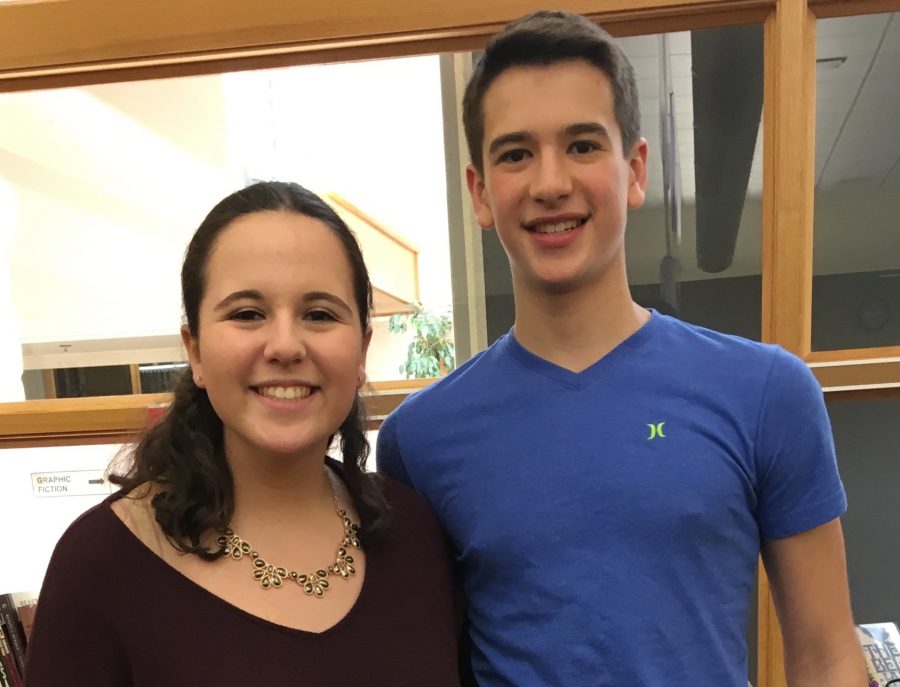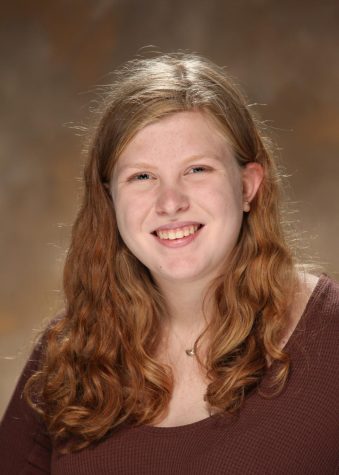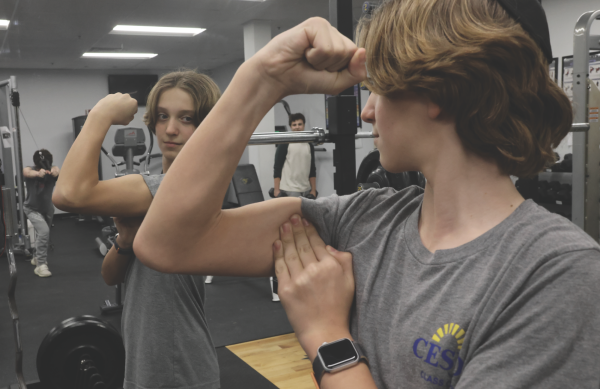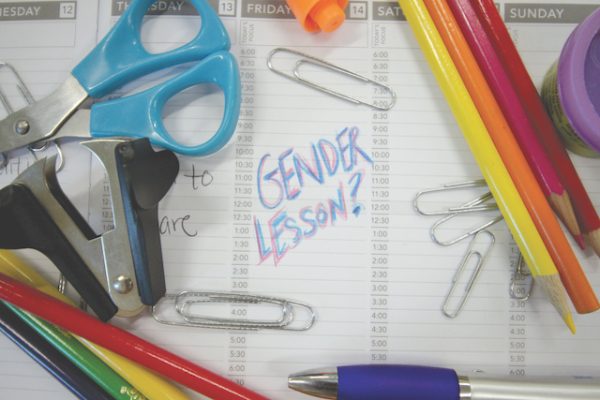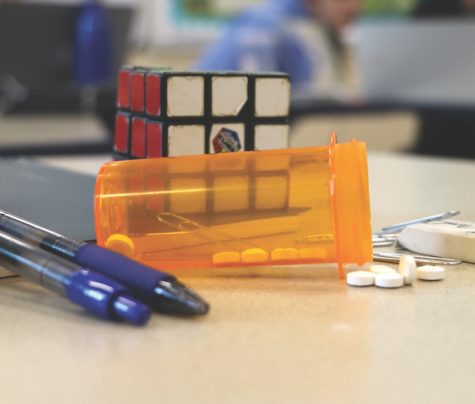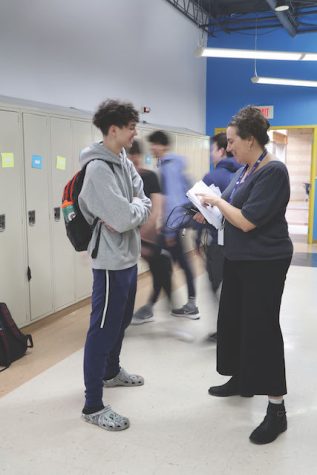Twinning!
The ups and downs of having a twin
Although freshmen Isaac and Macie Gelb do not have many classes together, they make sure to still talk and catch up throughout the day.
April 18, 2016
The majority of CESJDS students understand the perks and struggles of having a sibling. While most siblings have some degree of separation in their lives, twins must coexist in many situations they face.
The 12 pairs of twins in the Upper School have to share both their academic and social lives. Being in school together and having mutual friends can take a toll on twins’ everyday lives and relationships with one another.
Freshman Macie Gelb, who attends JDS with her twin, Isaac, believes that having a twin can lead to increased academic pressure. While she has long struggled with the idea of being in fewer advanced classes than her brother, Macie manages to see the good in the situation.
“I try to be proud of his accomplishments, and he should be proud of mine,” Macie said. “The most important thing is that we’re happy with our own accomplishments.”
Seventh-grader Tess Mendelson is grateful for not sharing Macie’s situation. Mendelson feels that she benefits from the fact that her twin, Ruby, does not attend JDS.
“It’s easier for me not to go school with my twin, because people are always referring to you as one person, and they just compare you a lot,” Mendelson said.
Both Macie and Isaac agree that being compared academically within school is difficult. They also believe that having a twin makes it difficult to branch out when making friends. These issues did not arise when they were younger because they did not have many classes together, and they believe that this has served them well socially and academically.
While Macie does not think that currently having a class with her brother would be particularly problematic, she thinks that it is smart to keep twins apart when they are younger, so that they can grow and develop separately. Isaac agrees, and believes that his life would be very different socially if he and Macie had been in the same classes when they were younger.
“When I was little I was a lot more shy, and I probably would have just hung out with my twin and made fewer friends,” Isaac said. “So now, I’m happy that I can hang out with my twin but also have my own friends as well.”
Some believe the social implications of being a twin can be influenced by gender. Macie believes that her social relationships would be very different if she had a twin sister instead of a brother, because they would have to deal with having many mutual friends.
On the other hand, Mendelson does not believe that having a twin of the same gender constrains her from making separate friends from her sister. She said that she and her sister are “pretty different,” and their differences are only exacerbated by the fact that they go to different schools, which leads to them having almost no mutual friends.
Overall, the Gelb twins have found ways to not let their relationship with each other get in the way of their academic and social lives. They have found that once those obstacles have been overcome, having a twin can have a number of day-to-day benefits.
“It’s a lot of fun having somebody in your grade that you get to see at home every day,” Isaac said. “It’s not something that most people are used to, but to me it’s just everyday life.”


